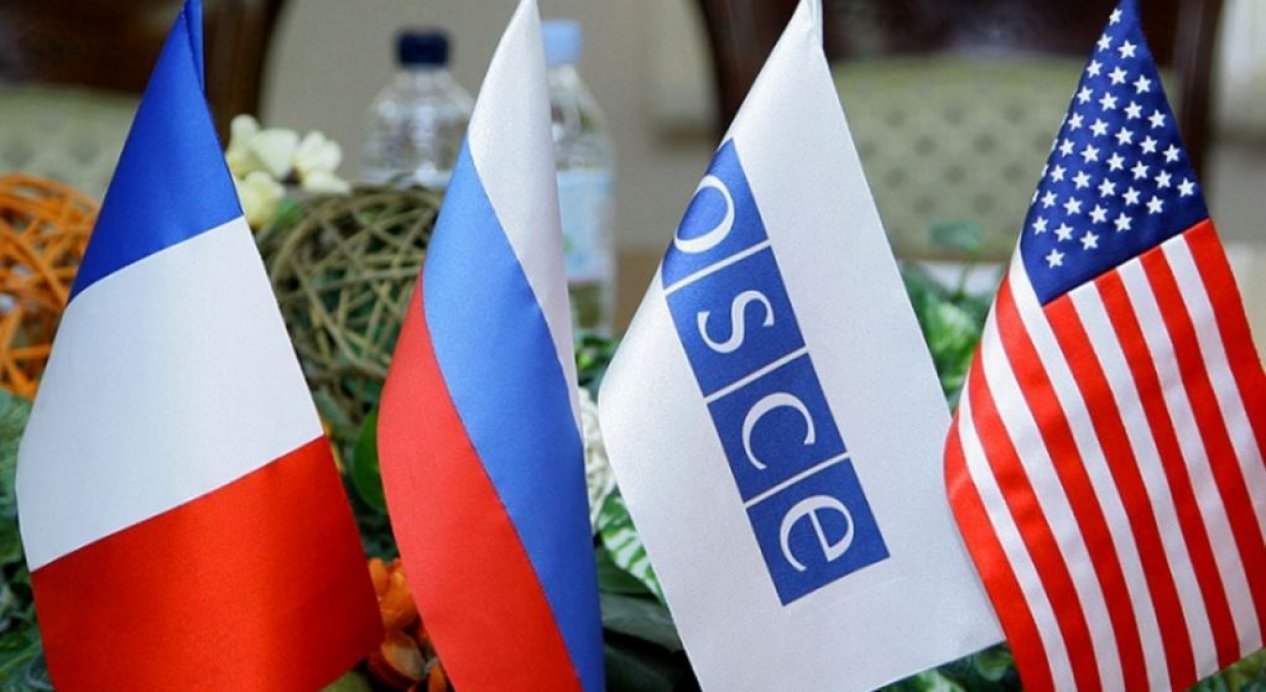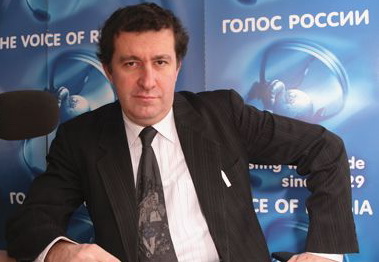
Russian political scientist Alexander Skakov said that after a year of persistence, Azerbaijan finally gave in, agreeing to meet with the Armenian side within the Minsk Group co-chairmanship. “Azerbaijan shows willingness to negotiate, but this willingness doesn’t mean that it will definitely negotiate literally. In other words, Azerbaijan will try to show that it is ready to negotiate, will talk about it at this or that platform, but in fact it won’t negotiate around anything. This is Baku’s policy in this particular case,” Skakov said.

The reason for such conclusions was the words of Azerbaijani President Ilham Aliyev that he would be ready to hold a meeting with Armenian Prime Minister Nikol Pashinyan if it is arranged by the OSCE Minsk Group.
The OSCE Minsk Group was looking for ways of peaceful settlement of the Karabakh conflict before the second Karabakh war. The Minsk Group is co-chaired by Russia, the US and France. In addition to them, the Minsk Group includes Belarus, Germany, Italy, Turkey, Finland and Sweden, as well as Azerbaijan and Armenia.
After the words of the Azerbaijani president, the OSCE Minsk Group expressed its readiness to help in organizing the meeting of the heads of the two states.
“The Co-Chairs have taken positive note of President Aliyev’s and Prime Minister Pashinyan’s public statements expressing their readiness in principle to meet with each other under the auspices of the Co-Chairs,” reads a statement published on the OSCE website, which was made by the Co-Chairs of the OSCE Minsk Group (Stephane Visconti of France, Andrew Schofer of the United States of America, and Igor Khovaev of the Russian Federation).
Faktyoxla Lab. will try to prove that Azerbaijan has never refused from the Minsk Group and no pressure from the outside was required for the statement of President Ilham Aliyev.
We couldn’t find any statements that would indicate Azerbaijan’s refusal from the services of intermediaries or its withdrawal from this structure. However, there are many claims against intermediaries in connection with their inactivity.
“What the Minsk Group will be doing is still unknown to us. We look forward to some creative ideas from them,” President of the Republic of Azerbaijan Ilham Aliyev said making a press statement with President of the Republic of Belarus Alexander Lukashenko.
“I have also told Alexander Grigoryevich that one format associated with the city of Minsk has now been consigned to history. The Minsk Group exists, but the conflict has been resolved. What the Minsk Group will be doing is still unknown to us. We look forward to some creative ideas from them.”
Azerbaijan expects the OSCE Minsk Group to present its proposals on the further settlement of peaceful life in the region, President Ilham Aliyev said at the “New Vision for South Caucasus: Post-Conflict Development and Cooperation” international conference.
“But I think if we talk seriously, there could be some areas where they can play their role, because as the post-conflict situation, not as a group which needs to help to resolve the conflict,” he noted.
“When I talk about future peace agreement with Armenia, if Armenia would consider this option, then there could be a lot of room for international players. There are the issues of demarcation, delimitation interaction. So, we are part of international community we are part of the OSCE and the OSCE has a very special role in the region. Therefore, I think that they can be useful. But it has been quite some time that they did not visit us. I hope they will come soon with some proposals and we will definitely look at these proposals with due attention,” Ilham Aliyev said.
Criticizing the OSCE Minsk Group, the president of Azerbaijan has always substantiated his position.
“The countries chairing the Minsk Group, their presidents made very positive statements several times during the occupation, about seven to eight years ago. One of them, and it was clearly stated, was that the status quo was unacceptable and had to be changed. We also received it very positively. I have personally expressed my views on this issue several times and said that it was a statement that has been expected for many years. To change the status quo means an end of the occupation. However, these statements were not followed by tangible steps. Furthermore, after a while they back down from this statement and put forward a new one – the status quo is not sustainable. In other words, there is a huge difference between them. Unacceptable is one thing, but not sustainable is completely different. I criticized them at the time and said that this change of position was pouring water on the mill of Armenia's policy of aggression. Unfortunately, as the subsequent period showed, the Minsk Group simply did not intend to resolve this issue,” Ilham Aliyev said in an interview with the Turkish Anadolu Agency.
“Unfortunately, Minsk Group did not play any role in resolution of the conflict, though, Minsk Group had a mandate to do it for 28 years,” President of the Republic of Azerbaijan Ilham Aliyev said as he received the OSCE Minsk Group co-chairs Stephane Visconti of France, Andrew Schofer of the US, Ambassador of Russia to Azerbaijan Mikhail Bocharnikov and Personal Representative of the OSCE Chairperson-in-Office Andrzej Kasprzyk.
Azerbaijan isn’t the only one that is unhappy with the activities of the OSCE Minsk Group. The inactivity of the intermediary structure was also noted at the global level. Thus, the authoritative US magazine Foreign Policy published an article dedicated to the 30-year activity of the OSCE Minsk Group within the settlement of the Karabakh conflict. “For 30 years, the Minsk Group failed to produce results; the recent victory by Azerbaijani military forces -ending Armenia’s occupation -leaves it with nothing left to do. It is now bankrupt and dead,” reads the article.
Some harshness in the Azerbaijani president’s addressing the co-chairs of the OSCE Minsk Group on Karabakh from the US and France, who arrived in Baku in December last year, shouldn’t be interpreted as a refusal from the Minsk Group’s efforts.
“I did not invite Minsk group to come. But when I was informed that Minsk Group wants to come, I said okay, I don’t mind, maybe they have something to tell me. If you want to do it in front of the cameras, it’s okay, if not, I can tell them to leave. It’s up to you. Yes, I am listening to you,” the president said.
“Therefore, first of all, we need to know what is the position of the co-chairs- Russia, the United States, France. How they see the Minsk Group future functioning, because, it is them who actually are co-chairing this group. We think that the conflict is resolved. That is our position. Is there a room for a group which was supposed to help to resolve the conflict after the conflict is resolved? I don’t know,” Ilham Aliyev said.
“At the same time, I am not in a position to say we don’t need Minsk Group any longer, go away, No. Why should I? Therefore, I diplomatically asked them to think about to show creativity. They have been so creative during all these 29 years. So, show some more creativity,” he added.
Thus, we come to the conclusion that Skakov’s words that Azerbaijan yielded to pressure and agreed to the OSCE Minsk Group don’t correspond to reality. In fact, Azerbaijan never refused to cooperate with the OSCE Minsk Group, but made it clear that it expects new approaches and new proposals from the Group.




















